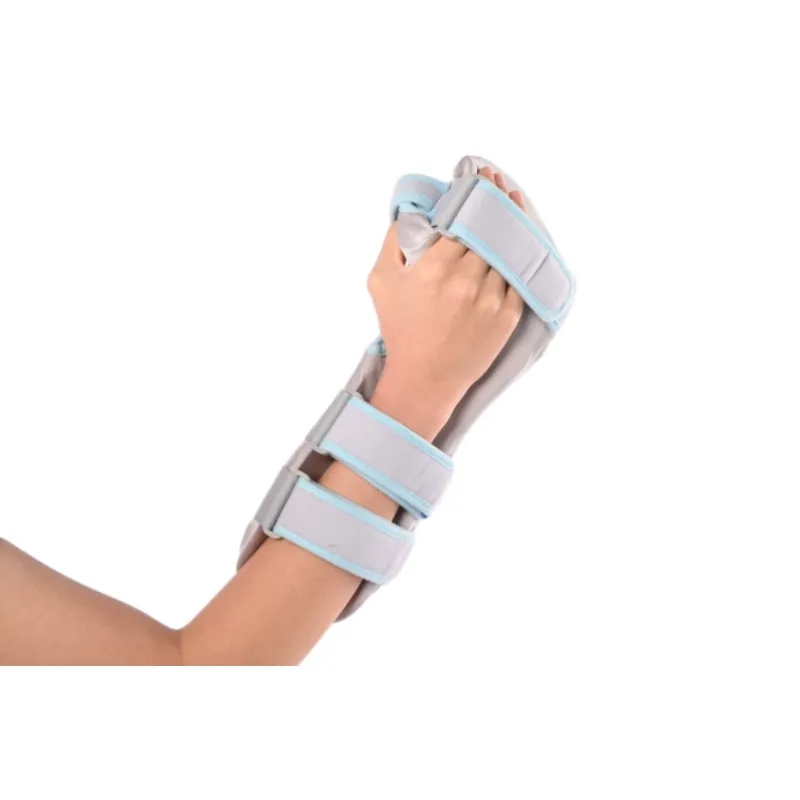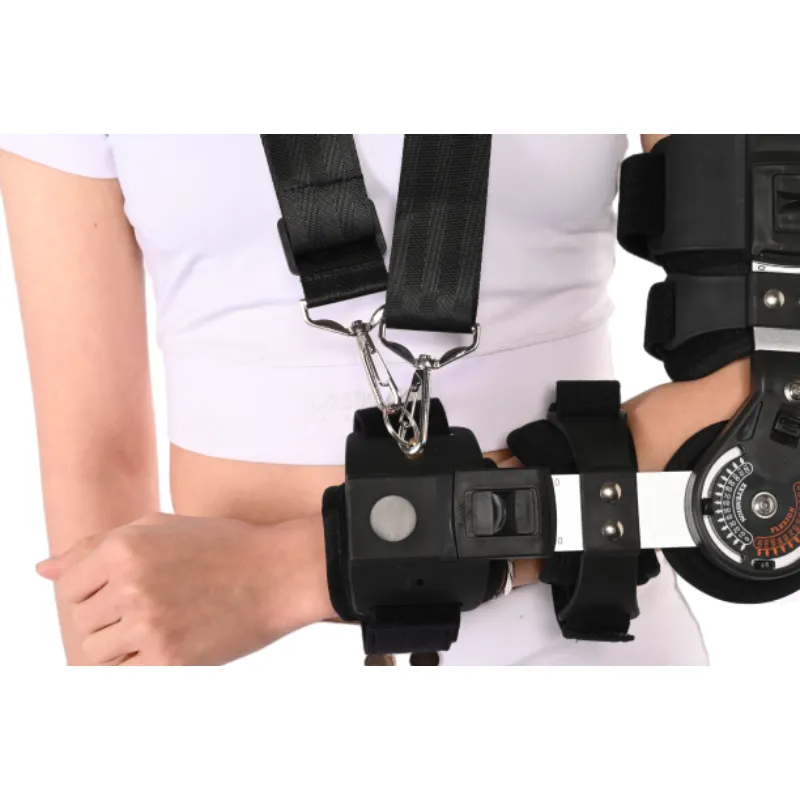Jan . 19, 2025 02:34
Back to list
no collar after acdf surgery
Anterior cervical discectomy and fusion (ACDF) surgery is a common procedure performed to relieve pressure on the spinal cord or nerves from herniated or degenerated discs in the neck. Traditionally, postoperative care often included wearing a neck collar to immobilize the neck and support healing. However, in recent years, there has been a shift in many medical practices, moving away from routine collar use following ACDF surgery. This article explores this evolving medical approach and its implications for patients, drawing on the latest research and clinical experiences to provide insights into the benefits and considerations of forgoing a neck collar after ACDF surgery.
Professional organizations, including the North American Spine Society and various esteemed orthopedic associations, have started acknowledging the benefits of collar-free recovery after ACDF in certain cases. These endorsements, grounded in comprehensive reviews of current evidence, highlight that while neck collar use might be beneficial in specific patient scenarios — such as those with poor bone quality or additional instability concerns — it is not universally required for all ACDF surgeries. Considerations and Personalized Care It's important to understand that the decision to use or forego a neck collar after ACDF surgery should be personalized. Factors such as the patient's overall health, specific surgical details, and the presence of any comorbid conditions play a crucial role in post-surgical care decisions. Surgeons must assess each case individually, taking into account the risk-to-benefit ratio for the patient. An open, transparent discussion between the patient and healthcare provider is essential to identify the best postoperative approach for each individual. Product Innovations Supporting No-Collar Recovery With the shift away from standard neck collar usage, the healthcare industry has seen innovations in products designed to support recovery without a collar. These include ergonomic pillows, therapeutic neck massage devices, and guided physiotherapy programs that promote healing and strengthen neck muscles. These products provide comprehensive support to patients, ensuring they maintain the necessary comfort and support without the drawbacks of a traditional neck brace. Trusted Sources and Future Directions While the trend towards no-collar recovery is gaining traction, it remains essential for patients to rely on trusted healthcare providers for advice tailored to their specific needs. Medical professionals continue to study the long-term outcomes of ACDF surgeries without neck collars to further refine best practices and improve patient outcomes. As more data becomes available, it is anticipated that the medical community will further embrace personalized recovery plans that optimize healing and overall patient satisfaction. For those undergoing or considering ACDF surgery, understanding the implications of using, or not using, a neck collar is crucial. Staying informed about the latest research and maintaining open communication with healthcare professionals will ensure that each patient receives the highest standard of care, tailored to their unique circumstances.


Professional organizations, including the North American Spine Society and various esteemed orthopedic associations, have started acknowledging the benefits of collar-free recovery after ACDF in certain cases. These endorsements, grounded in comprehensive reviews of current evidence, highlight that while neck collar use might be beneficial in specific patient scenarios — such as those with poor bone quality or additional instability concerns — it is not universally required for all ACDF surgeries. Considerations and Personalized Care It's important to understand that the decision to use or forego a neck collar after ACDF surgery should be personalized. Factors such as the patient's overall health, specific surgical details, and the presence of any comorbid conditions play a crucial role in post-surgical care decisions. Surgeons must assess each case individually, taking into account the risk-to-benefit ratio for the patient. An open, transparent discussion between the patient and healthcare provider is essential to identify the best postoperative approach for each individual. Product Innovations Supporting No-Collar Recovery With the shift away from standard neck collar usage, the healthcare industry has seen innovations in products designed to support recovery without a collar. These include ergonomic pillows, therapeutic neck massage devices, and guided physiotherapy programs that promote healing and strengthen neck muscles. These products provide comprehensive support to patients, ensuring they maintain the necessary comfort and support without the drawbacks of a traditional neck brace. Trusted Sources and Future Directions While the trend towards no-collar recovery is gaining traction, it remains essential for patients to rely on trusted healthcare providers for advice tailored to their specific needs. Medical professionals continue to study the long-term outcomes of ACDF surgeries without neck collars to further refine best practices and improve patient outcomes. As more data becomes available, it is anticipated that the medical community will further embrace personalized recovery plans that optimize healing and overall patient satisfaction. For those undergoing or considering ACDF surgery, understanding the implications of using, or not using, a neck collar is crucial. Staying informed about the latest research and maintaining open communication with healthcare professionals will ensure that each patient receives the highest standard of care, tailored to their unique circumstances.
Latest News
-
Hard Cervical Collar - Hebei Jianhang | Neck Support, Adjustable FitNews Aug.01,2025
-
Hard Cervical Collar - Hebei Jianhang Technology Co., Ltd.|Advanced Neck Support, Adjustable FitNews Aug.01,2025
-
Hard Cervical Collar - Hebei Jianhang Technology Co., Ltd.|Neck Support&Comfortable DesignNews Jul.31,2025
-
Hard Cervical Collar - Hebei Jianhang Technology Co., Ltd.|Adjustable Neck Support, Lightweight Cervical CollarNews Jul.30,2025
-
Hard Cervical Collar-Hebei Jianhang Technology Co.,Ltd.|Neck Support, Adjustable FitNews Jul.30,2025
-
Hard Cervical Collar - Hebei Jianhang Technology Co., Ltd.News Jul.30,2025
Have a question? Keep in touch.





















